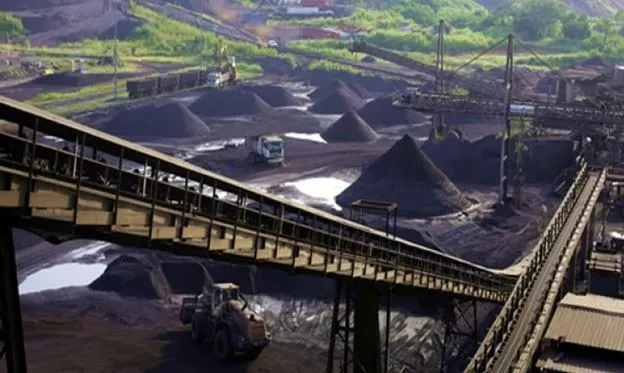
Gabon is set to ban the export of raw manganese starting January 2029, as the government pushes to establish itself as a regional hub for manganese processing.
This bold move, announced on May 30, 2025, grants economic operators a three-year window to prepare for the transition to local value addition.
In line with this, the first meeting of the Commission overseeing the Integrated Local Mineral Processing Project took place on Wednesday in Libreville.
Convened by the Ministry of Mines and Geological Resources, the session brought together key government officials, including Vice-President Alexandre Barro Chambrier, who chaired the discussions.
Following a detailed presentation by Gilles Nembe, Minister of Mines and Geological Resources, on the project’s scope, technical challenges, and its cross-sectoral implications, participants shared their perspectives and concerns.
The meeting concluded with a unified commitment to collaborate closely toward fulfilling the President’s vision: transforming Gabon into a manganese processing hub by 2029 while generating thousands of jobs in the process.
Manganese ranks as the fourth most exploited metal in Gabon, trailing only iron, aluminum, and copper.
It plays a critical role in the steel industry and finds applications in alloy production, batteries, and various other industrial uses.
As a transition metal, its strategic importance is expected to grow amid global shifts toward green technologies.
This initiative not only aims to boost Gabon’s industrial capacity but also to foster economic diversification and enhance the country’s competitiveness in the global minerals market.
The government’s firm stance on ending raw ore exports underscores a broader push to maximize domestic beneficiation of natural resources.



